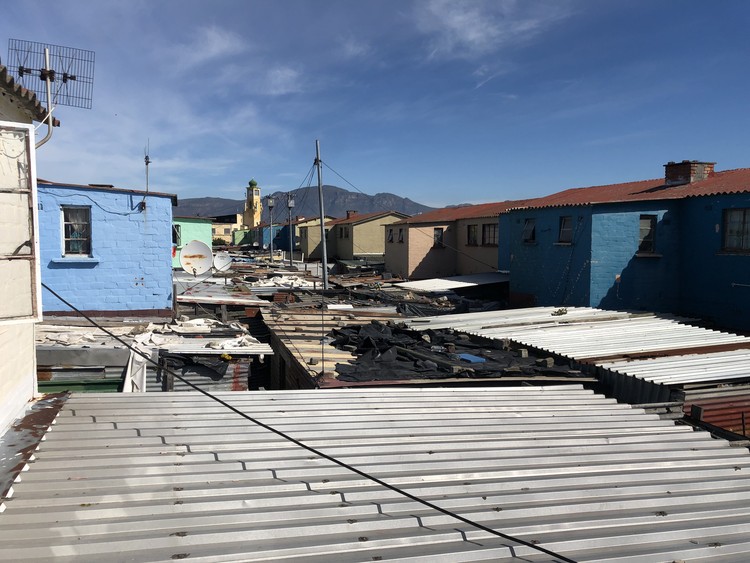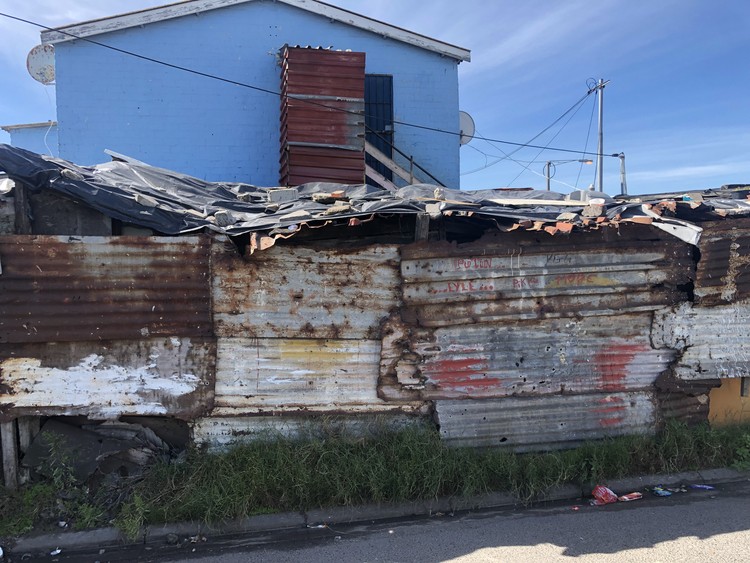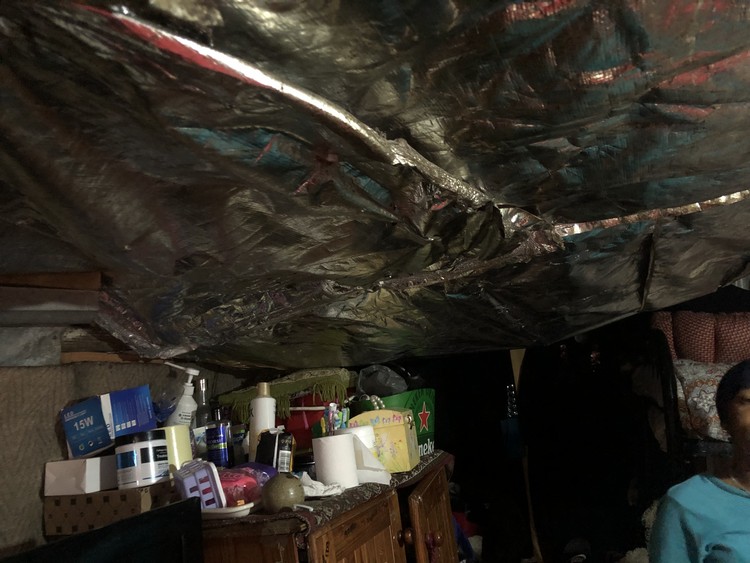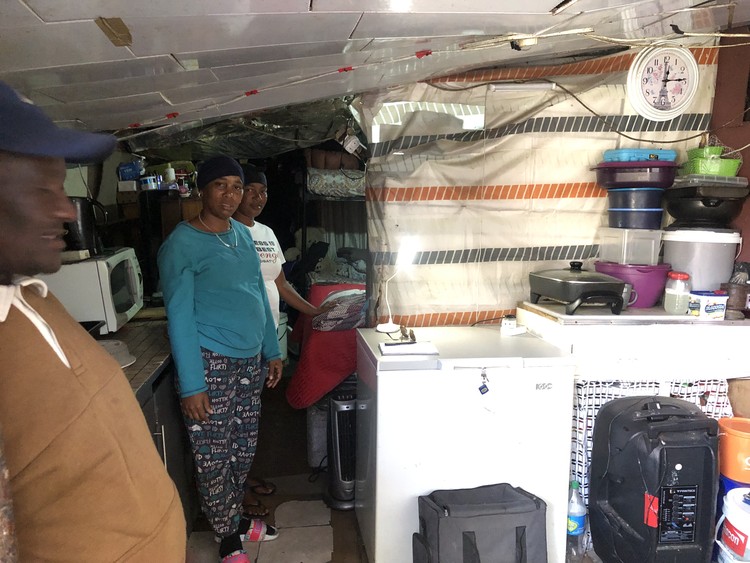Families in Cape Town’s squalid backyards are still waiting for promised housing project
The Greater Retreat Housing project was announced in 2018
Each backyard in these rows of council flats in Parkwood, Cape Town houses one or more families. The shortage of housing in the area has been worsened by delays in a housing project. Photos: Mary-Anne Gontsana
- Backyarders in Parkwood in Cape Town have been hoping for housing in the Greater Retreat Housing project since it was announced in 2018.
- But there has been little progress or updates from the authorities on this project.
Since 2016, families living in backyards in Parkwood in Cape Town have staged several protests to demand proper housing in the area.
The Western Cape Department of Human Settlements told GroundUp in 2019 that building approvals and planning for the Greater Retreat Housing project, that would include Parkwood, would be completed by March 2022. But six years later, there’s no progress, and backyarders continue living in dire conditions.
In Parkers Walk are rows of old council-owned flats, each one with families living in the backyard. Some backyarders are members of the extended family; others are tenants who have found nowhere else to live because of the lack of housing opportunities in Parkwood.
Beverley Booysen has been a backyarder in Parkwood for 14 years. She moved there from Delft where she also lived as a backyarder. She has been on a housing waiting list for more than 15 years, she says.
Booysen shares her three-roomed zinc and wood home with 12 other people, including young children. Her ceiling is broken, with large holes and exposed electrical cables.
“This is how we live … look at this place,” she said. “My only wish is to get a home and not live in a shack. I don’t know what it’s like not living in a shack,” said Booysen.
Parkwood resident and chairperson of the Parkwood Backyarders’ Association, Dominique Booysen, (who is not related to Beverley) said backyarders had been looking forward to benefiting from the Greater Retreat Housing project. But since it was announced in 2018, there has been little progress.
“We are in the dark. At this point we don’t even know whether this project will still happen because there has been no communication about it with us. Even the ward councillor says he knows nothing.”
“We’ve had countless public meetings with the City of Cape Town. Promises were made every time, but nothing would come of them. A steering committee was even formed, meetings were held with the committee, nothing happened,” said Booysen.
Most of the backyarders in Parkwood live in difficult and cramped spaces with little access to toilets and water.
In 2019, GroundUp reported that the Western Cape Department of Human Settlements said plans for the Greater Retreat Housing project were in progress. At the time, department spokesperson Muneera Allie said “There are multiple sites for this project that all need to be investigated. Construction could start earlier on sites that have less encumbrances,” she said.
Sisters Aqeefah Carolus and Gaynor Jacobs live in separate structures with their families on the same plot. “We moved out from our mother’s house in Parkwood because there was no space in the house anymore,” said Carolus, who lives with five other people.
Carolus said when she last checked a few months ago, she had been on the housing waiting list for 19 years.
Carolus’s home is in a bad state. “We use buckets as toilets. When it rains the water comes inside the structure and the roof leaks. We use jars like empty peanut butter or butter containers to catch the leaks.”
Her shack is next to the road, and she says a couple of years back a bullet from a gang shooting hit her shack, grazing her brother’s buttocks.
Aqeefah Carolus uses silver sheeting as insulation on her ceiling.
The Western Cape Department of Infrastructure said this week that development rights had been secured on land on part of the project and a developer would be appointed to to start construction this financial year. On another part of the project, a mixed-use development had been recommended, which could include up to 4,500 homes.
Melchior Botes, spokesperson for MEC Tertuis Simmers, said beneficiaries for all projects in the Greater Retreat area would be selected in accordance with the City’s allocation policy.
“The residents of the Parkwood backyarders community are therefore encouraged to register or verify their registration on the database to ensure that they are eligible to benefit from these projects,” said Botes.
Sisters Aqeefah Carolus and Gaynor Jacobs live in separate structures with their families on the same plot. They have been on the housing waiting list for years.
Support independent journalism
Donate using Payfast

Don't miss out on the latest news
We respect your privacy, and promise we won't spam you.
© 2025 GroundUp. This article is licensed under a Creative Commons Attribution-NoDerivatives 4.0 International License.
You may republish this article, so long as you credit the authors and GroundUp, and do not change the text. Please include a link back to the original article.
We put an invisible pixel in the article so that we can count traffic to republishers. All analytics tools are solely on our servers. We do not give our logs to any third party. Logs are deleted after two weeks. We do not use any IP address identifying information except to count regional traffic. We are solely interested in counting hits, not tracking users. If you republish, please do not delete the invisible pixel.




